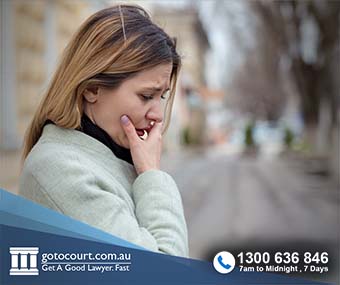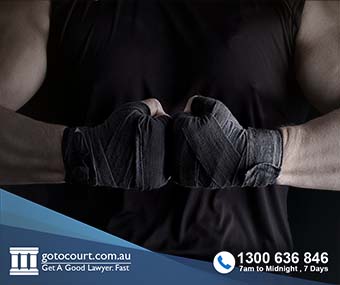Call our lawyers
now
or,
have our lawyers
call you
Common Assault in the Northern Territory
Updated on Jan 12, 2023 • 5 min read • 1486 views • Copy Link
Common Assault in the Northern Territory
In the Northern Territory, there are a number of offences relating to assault contained in the Criminal Code Act 1983. These include common assault, assaults on workers, assaults on police and assaults with intent to commit an offence. This page deals with common assault in the Northern Territory.
Legislation governing common assault in the NT
Common assault is an offence under section 188 of the Criminal Code Act 1983.
Penalty for common assault in the Northern Territory
Common assault can attract a maximum penalty of imprisonment for one year. A court may also impose a non-custodial sentence such as a fine, good behaviour bond or community work order.
Jurisdiction
Common assault is a summary offence and is dealt with in the Local Court (or Children’s Court if the accused is a juvenile).
What is a common assault?
A common assault in the Northern Territory is defined as:
- The direct or indirect application of force to a person without their consent; or
- The attempted or threatened application of force.
A common assault, therefore, does not require the victim to suffer harm. It does not even require physical contact between the offender and the victim.
A common assault may consist of a punch, slap, push or kick. It may also consist of simply making a movement that gives a person the impression that one of those things is about to occur – for example, raising a fist to a person.
Pleading guilty to common assault
If you have been charged with common assault in the NT and you are thinking about pleading guilty, you should first review the charge and police summary of facts carefully with a lawyer. You should plead guilty only if all the elements of the offence can be proven and there is no defence available. You should also ensure that you agree with the police summary of facts before pleading guilty as you will be sentenced based on this information. Your lawyer may be able to negotiate for the statement of facts to be amended if there are statements in it that you disagree with.
It is advisable to gather supporting material for the court prior to pleading guilty. This may include character references from people who know you well and are aware or the charges against you, psychological reports or evidence that you have taken steps to address your offending – such as by taking part in a rehabilitation program or an anger management course.
Pleading not guilty to common assault
If you have been charged with common assault in the NT and you are thinking about pleading not guilty, your matter will be adjourned so that the prosecution can prepare the brief of evidence and provide it to you or your lawyer. You should review the brief of evidence carefully with your lawyer to assess the strength of the case against you.
Your matter will then be listed for a contested hearing. At the hearing, the court will hear evidence and submissions from the prosecution and defence. The magistrate will then decide whether you have been found guilty beyond a reasonable doubt.
If you are found guilty, the magistrate will then impose a sentence. If you are found not guilty, the matter will be dismissed.
Defences to common assault in the Northern Territory
A person who is charged with common assault in the NT may have a number of legal defences available to them. These include the following.
The defence of self-defence
Under section 43BD of the Criminal Code Act 1983, a person is not guilty of a common assault if they acted in self-defence. A person acts in self-defence if they do an act that they believe is necessary in self-defence and the act is a reasonable response in the circumstances as the accused perceives them.
The defence of duress
Under section 40 of the Criminal Code Act 1983, a person is not guilty of a common assault if they acted under duress. A person acts under duress if they are subjected to a threat that they believed could be carried out and had no other way to escape the threat being executed. A court will find a person not guilty on the basis of duress if an ordinary person would have acted similarly in the same circumstances.
The defence of domestic discipline
Under section 11 of the Criminal Code Act 1983, a person is not guilty of an assault if they are reasonably disciplining a child and they are the parent or are acting for the parent of the child.
The defence of immature age
Under section 38 of the Criminal Code Act 1983, a person cannot be found guilty of an offence if they are below the age of 10. A person between 10 and 14 can only be found guilty of an offence if the prosecution can show that they had the capacity to know that they ought not to do the act.
If you require legal advice or representation in any legal matter, please contact Go To Court Lawyers.


Affordable Lawyers
Our Go To Court Lawyers will assist you in all areas of law. We specialise in providing legal advice urgently – at the time when you need it most. If you need a lawyer right now, today, we can help you – no matter where you are in Australia.How It Works








1. You speak directly to a lawyer
When you call the Go To Court Legal Hotline, you will be connected directly to a lawyer, every time.


2. Get your legal situation assessed
We determine the best way forward in your legal matter, free of charge. If you want to go ahead and book a face-to-face appointment, we will connect you with a specialist in your local area.


3. We arrange everything as needed
If you want to go ahead and book a fact-to-face appointment, we will connect you with a specialist in your local area no matter where you are and even at very short notice.













